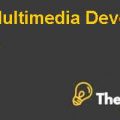
Pros and Cons of Tablets:
Pros:
Tablets of a current generation iPad gain a massive acceptance and become an instant hit. The main reason behind the popularity of the iPad was the smart marketing of Apple and the efforts behind Steve Jobs. Another reason behind the success of the iPad was its exclusive touch-based user interface for the consumers.
Many researches have shown that the users of Tablets are very pleased and enjoy using it. It has been observed that the degree of satisfaction was observed irrespective of the operating system used in a Tablets. Consumers are using them for a wide range of activities that include emailing, web browsing and for the consumption of content (Roger, 2011).
Furthermore, another strength of Tablets are in their portability as the physical appearance of the devices are light in weight and thin structure. However, the benefits of Tablets are far more than the portability. Simplicity of learning, easiness in use, less effort in terms of installation and elevation of various software that are required to run the device. Furthermore, the longtime batteries allowed users to use it all day.
The meaning of portability does not just have lesser size and light mass. The portability in Tablets goes beyond it, and the capabilities of the Tablets are way more than the traditional PCs. Starting with the difficulty of hands while sitting straight and hands on keyboard and mouse. In Tablets, consumers can easily access their desired information whilst being away from the personal computers and it is not even necessary to sit and be on the PC.
Individuals can now communicate and interact with each other by standing anywhere in the home or office. Moreover, Tablets are found to be less disturbing than PCs especially at the time when a person is talking to another one as it help both individuals to interact in a better way and foster direct face to face communication(Markoff & John, 1999).
Cons:
There are certain weaknesses of Tablets as well. For instance, Tablets are restricted in terms of competences in making comparison with personal computers. There are users who have accepted that there is certain limitation in tablets in comparison with PCs. There are many tablets especially the ones that are without windows 8 operating system are difficult in terms of creating content. Along with that, there are plenty of features in tablets that are limited in terms of their versions.
Furthermore, not having a keyboard and mouse is a strength and a weakness as well because it limits the users typing speed and limits consumer’s ability. Furthermore, absence of the keyboard and a high-resolution pointing device makes it difficult to edit the text typed by the users. Other than that, there are certain tablets which have difficult editing and copy paste system (Conrad, 2010).
Limitations like a touch of the user interface and not so proper support for typing in the operating system led users to use tablets not as a single device but an acquaintance with personal computers. The survey has been done from the tablet users that revealed that majority of the tablet users are using their tablets as a secondary device and use the personal computer to perform their primary functions.
From the business environment perspective, tablets without windows have become a challenge for information technology. Current and known security and management related software are not able to work properly with the newer versions of operating systems.
Furthermore, there are not so many vendors and wholesalers who are offering any alternatives of windows. To overcome that, companies need to have support staff those have knowledge and expertise about the new and updated software. This is the reason that information technology is resilient to adding new types of devices along with newer versions of operating systems (Haslam & Karen, 2013).
Another main con that is linked with all the mobile devices are the risk of losing security. Being mobile in nature, there is a high probability of the mobile devices to be lost, misused or stolen.
There are several tablets; those without windows are not compatible with other software and devices. For instance, complex software like Windows Office Suite is not accessible for Android and iOS tablets. Regardless of the huge consumer apps that are obtainable for Android and iOS tablets, many situational and commercial breaks still exist in the software records.
Moreover, integration of data and application provision is a delinquent for the tablet users. Tablets that are without the windows operating system are also problematic to incorporate into physical systems. These tablets do not have ports and drivers that are common and can be easily shared with other devices like scanners, printers and monitors (Conlon & Tom, 2010).................................
This is just a sample partial case solution. Please place the order on the website to order your own originally done case solution.













